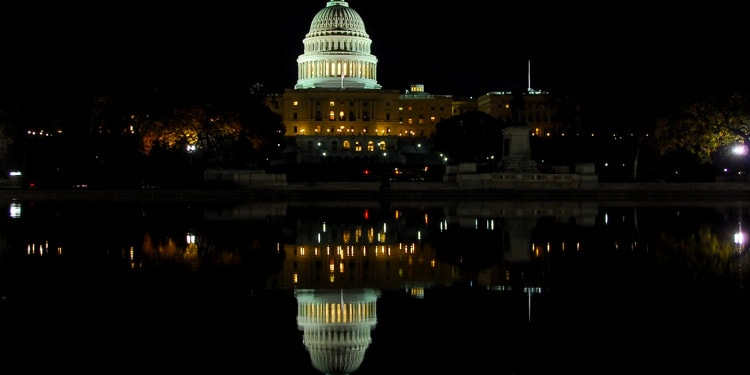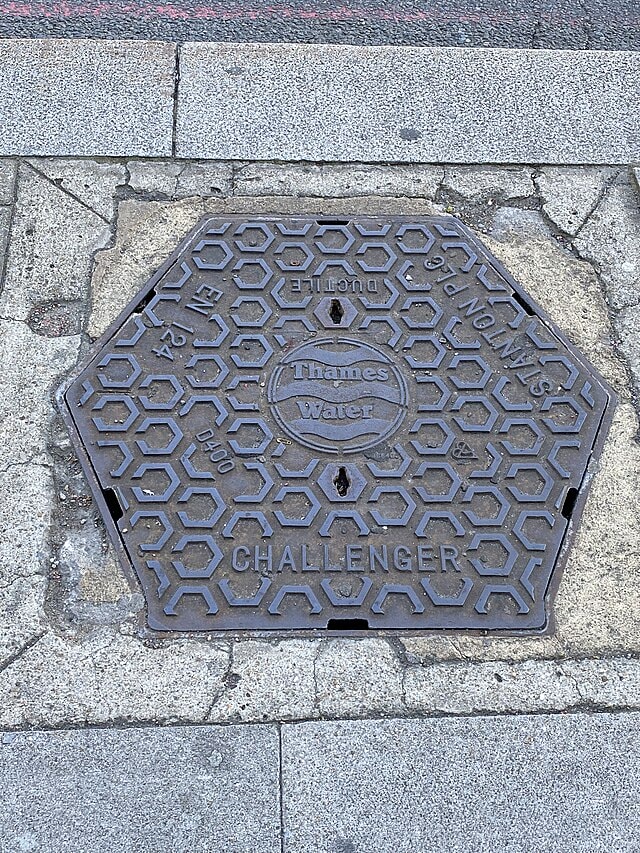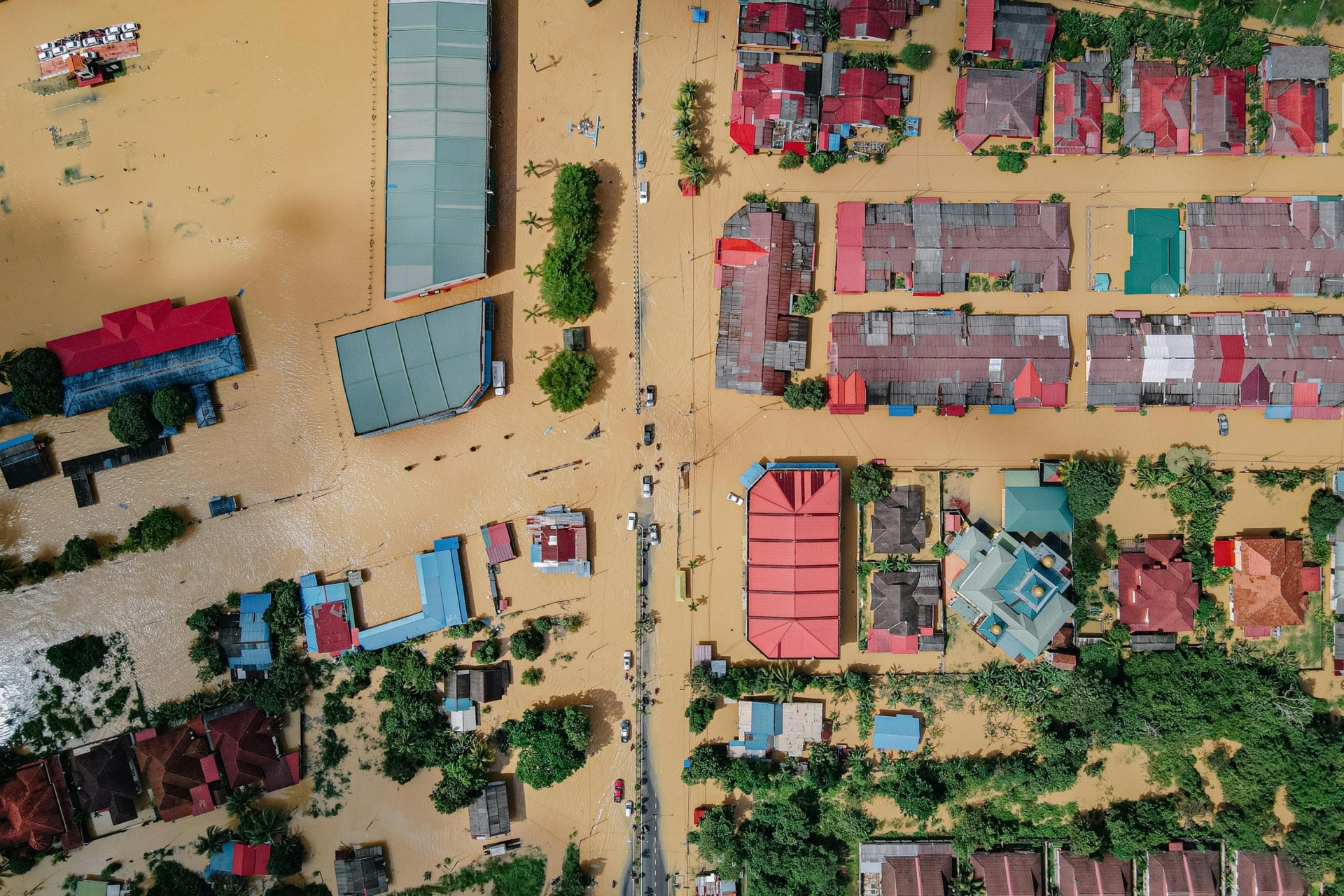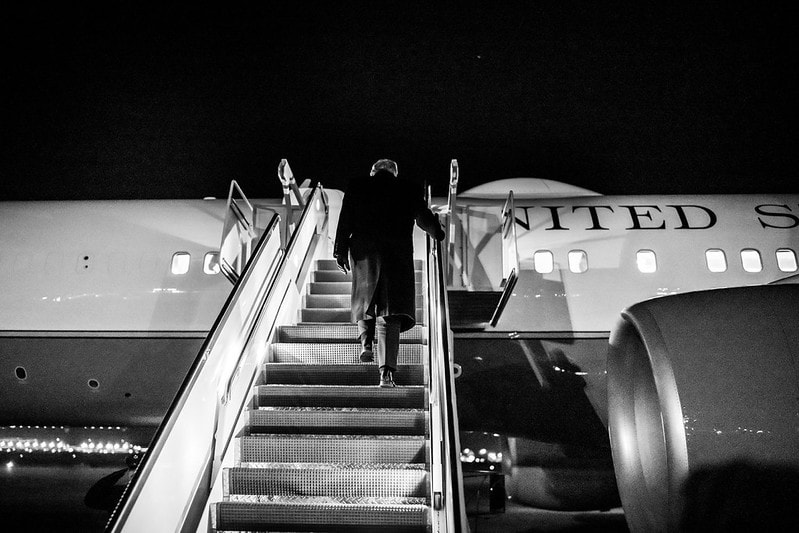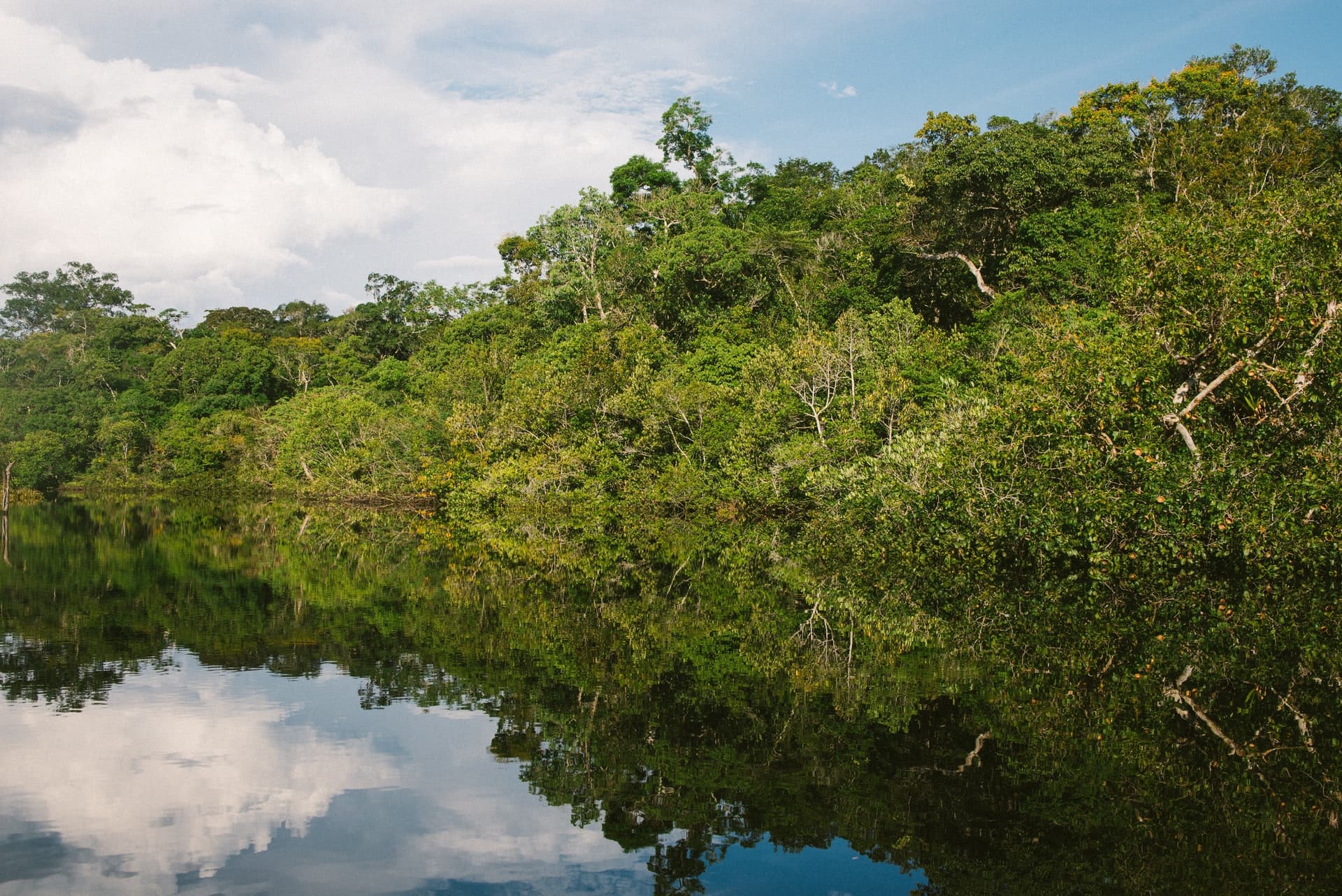More Americans are beginning to realize what has been evident all along to impartial observers in Europe: If Trump gets another four years at the White House, it will mark the definitive decline of American power. Much to China’s and Russia’s delight and Western Europe’s chagrin – after all, most Europeans are still America’s best allies.
One notable American in particular, Eliot Cohen, the Dean of the School of Advanced International Studies at Johns Hopkins University, has made the point crystal clear in a recent article on Foreign Affairs (27 October) with the telling title: “The End of American Power”. As Cohen notes, with the continuation of Trump’s approach to foreign policy, guided by the slogan America First, the United States will become increasingly isolated in world affairs. It will signal to the rest of the world that “Washington has given up its aspirations for global leadership and abandoned any notion of moral purpose on the international stage.”
If that were to happen, the world would plod on without America.
For Cohen, this is a problem that goes “beyond the realm of policy”. A Trump victory, he writes, “would mark a sea change for the United States’ relationship with the rest of the world. A second Trump term would confirm what many have begun to fear: that the shining city on a hill has grown dim and that American power is but a thing of the past.”
Indeed, the “city on the hill” is no longer shining – and few people in the world are still dreaming the “American dream”. The number of foreigners coming to America has dropped continuously over the last four years: 10 percent fewer foreign students in American Universities in 2019 compared to 2016; fewer workers whether in California fields to pick the crops or crunch numbers in Silicon Valley.
There are ever fewer migrants pushing at the Mexican border even though Trump has made a big deal of it. Sure, there was a rise this spring in spite of the pandemic because of Mexico’s economic slump – but the numbers are still much smaller than in the past. As the New York Times recently noted (in an August 2020 article), “The numbers are still far below the peak of the migration crisis in 2019, and also far lower than the record highs set in the 1980s, 1990s and 2000s when annual tallies of migrants apprehended at the southwest border often topped 1,000,000.”
Why? Because of Trumpian border policies? No, because the American dream in the Trumpian United States rings hollow.
In fact, with Trump, the dream has turned into a nightmare. In America, the rich are getting richer – not least thanks to Trump’s tax break – and the poor are getting poorer. With Trump in the White House, nine million Americans have lost access to medical care. If he stays there, expect Obamacare to be totally wiped out, and it won’t be nine million but almost thirty million who will be left out in the cold – and 1.2 million jobs will also be wiped out. According to an Economic Policy Institute study, this would happen not just because of a drop in healthcare. Groceries and other businesses would see a drop in sales because people, squeezed by high healthcare costs, would have less money to spend on other basic necessities like food and rent.
If the Trumpian nightmare goes on another four years, it’s bad for America, but it’s bad for the whole world too. I would argue that it doesn’t just spell the end of America as Cohen predicts, but the end of civilization. And perhaps human existence as we know it.
Am I exaggerating? I don’t think so. Consider the damage Trump has already done – and then extend that into the future:
-
- His policy of denial of climate change has led to unwavering support for the fossil fuel industry via (1) subsidies and (2) systematic destruction of environmental protection regulations – primarily undercutting the Environmental Protection Agency but now also the National Oceanic and Atmospheric Administration – obviously at the expense of renewable energy, the environment and ultimately public health as people are forced to live near polluting industries that destroy their lungs and drink tainted water that destroy the liver and intestinal system; the Brookings Institute has set up a tool to track environmental deregulation in the Trump era and it’s clear that Trump is well on his way to dismantle the EPA, reversing nearly 100 environmental rules; consider what that means: If the world’s biggest polluter continues to pollute unrestrained, what will happen to the planet?
- His policy of denial of the COVID-19 threat has already caused (according to some estimates) upwards of 70,000 unnecessary American deaths; with 220,000 deaths (at the time of writing) – that’s four times the number of American deaths in the Vietnam war – and over 400,000 deaths predicted by year-end; in short, this is a disaster but it didn’t need to happen, we all know what is required to prevent this (appropriate lockdown, social distancing, mask-wearing, hand-washing, etc) before vaccines and reliable therapies become widely available – something that cannot be achieved overnight despite Trump’s promises: It will take, by all accounts, at least another six months to one year; we could be out of the pandemic by next winter if we’re lucky and our leaders act responsibly – not the case with Trump;
- His systematic attacks on the international order because, as Cohen notes, Trump unlike most of his predecessors, does not see leadership at the U.N. “as an instrument of U.S. power but as a limit on it”. His most damaging moves include:
- a trade war with China, that as I have written when it began is a non-starter; so far, it has not slowed China down: on the contrary, its economy is currently the fastest growing in the world while consumer prices in America are rising and the U.S. economy is collapsing;
- withdrawal from international agreements (the Paris Climate Agreement) and U.N. specialized agencies, UNESCO, WHO – the latter is all the more remarkable that it was done in the middle of a pandemic;
- Weakening relations within NATO and systematic downgrading of America’s historic allies in Europe – even Germany is the target of recurrent attacks;
- Reshaping Middle Eastern policy with a pro-Israel, pro-Turkey, and pro-Saudi Arabia tilt that means some problems will continue unresolved, like the Palestinian State, the Kurd question, Syrian refugees, the Iranian nuclear threat;
- Abandoning Africa and Latin America: Trump is clear on this, they are “shithole countries” not worth the effort, unless they have some Trumpian fan as president, like Brazil’s Bolsonaro, a strong denier of climate change, busy overseeing the burning of the Amazon and other nature reserves in his country, like the Pantanal.
Not a pretty picture. The following video is worth watching, particularly considering who is doing the presentation:
A Return to the Law of the Jungle?
So with four more years of Trump, what happens next? As Cohen says, it is hard to imagine. But he does not mince his words:
“It would mean a return to a world that has no law other than that of the jungle—a world akin to the chaotic 1920s and 1930s but worse than that, because there would be no United States out there on the periphery, ready to be awakened and ride to the rescue.”
Indeed, the U.S. came to the rescue in World War II to challenge and ultimately defeat the populist autocratic fascist regimes in Germany, Italy and Japan. So, with nobody coming to the rescue, what would the world look like? Cohen has no doubts: it would be a return to the Law of the Jungle:
“It would become, rather, a world of radical self-help, in which any and all tools of power would be legitimated by that most powerful of reasons—necessity. States would be more tempted to acquire nuclear weapons and to consider the use of assassination, targeted biological weapons, and routine subversion in order to achieve security. The appeal of authoritarian systems would grow.”
But is there a silver lining in this jungle? Would the U.S. be sufficiently powerful to forestall any foreign intrusion and call for world order as it wishes? No. Because it would be weakened by internal discord. Cohen has no doubts: “A second Trump term, pulled off in large part by voter suppression, the quirks of the Electoral College, and the artful maneuvering of Republican politicians, would lead to an unstable polity,” he writes. “Outright civil war may not occur, but it is perfectly plausible to imagine the mobbing and murder of political leaders by partisans of either side—all egged on by a triumphant Trump and his outraged and radicalized opponents. And, of course, the United States’ foreign adversaries would find ways to fan the flames.”
A badly shaken America would play in the hands of China.
Cohen hesitates to spell this out. “The biggest consequences of a second Trump administration would be the most unpredictable,” he says. But one thing is certain, he concludes: “With a second Trump term, the United States might as well be understood as a monument to the past. Not a failed state, but a failed vision, a vast power in decline whose time has come and gone.”
With America “gone”, would the world really revert to the jungle? And would climate change complete its course, unimpeded, until the Sixth Extinction (that has already started) wipes out humanity from the face of the earth?
A Silver Lining: “The Future We Want And the United Nations We Need”
The United States might no longer play any role in the U.N. but that doesn’t mean the U.N. will disappear.
The U.N. has two strong supporters: One that was there from the beginning, Europe, and a new one, China. And it’s not a matter of finance if the U.S. withdraws its support: If needed, the money is there, from Europe, China, Japan, Australia, New Zealand, South Korea and a handful of middle-income countries.
The U.N. for its 75th Anniversary (this year) has made it absolutely clear what it sees as its role on the world stage. It has laid out a detailed roadmap for the future: Roadmap for the Future We Want & UN We Need and presented it last month to the President of the UN General Assembly at the UN75 Global Governance Forum.
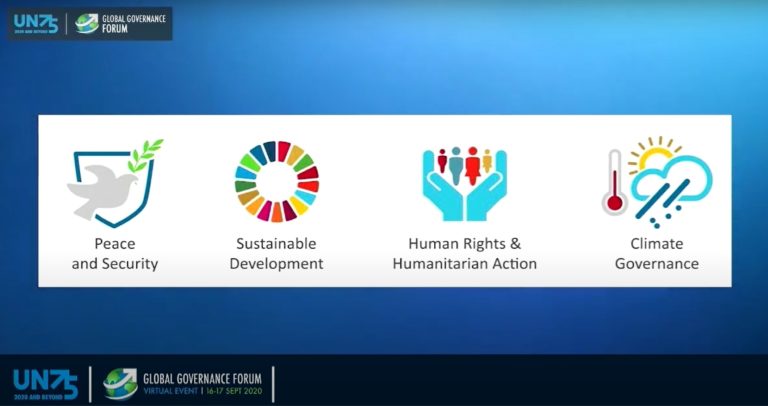
And, of course, the UN Roadmap immediately gained support across the globe, even from certain quarters in America. I’d like to quote from a recent article on Project Syndicate published on 23 October by Madeleine Albright, a Democrat and a former US secretary of state and ambassador to the United Nations. She wrote it in cooperation with Ibrahim Gambari, a former Nigerian foreign minister and ambassador to the United Nations, and former co-chair of the Commission on Global Security, Justice & Governance, where Albright is now co-chair.
In the article, Albright argues that to leave the UN “to decline, decay or even collapse” would be “tragic, not just for those institutions but for all of humanity.” International cooperation is “crucial”, she says, for a very simple reason: we live in a time of “ominous” transborder threats and challenges – COVID-19 obviously comes to mind. But she asks us to remember that “beyond pandemic disease, are a rapidly changing global climate, violent conflict and large-scale displacement in fragile states, and sophisticated cyber-attacks. What these challenges have in common is that they are beyond the ability of any country to resolve on its own.”(italics added)
There is only one way out, she concludes: “If all member states act upon the UN75 Declaration properly and with the support of global civil society, they can nurture a renewed spirit of international cooperation with two mutually reinforcing goals: institutional strengthening and a robust, “green” recovery from the pandemic.”
The UN can count on broad support in the international community, including from governments in Europe and China. But support is also coming from civil society. Already the UN Secretary General’s Global Conversation has reached over a million people worldwide through surveys, formal polling, and hundreds of dialogues – a conversation that Americans who have listened too closely to Trump may not have heard. But the conversation is there, and the desire to move forward to build a better, more sustainable world is there too. And a widespread desire it is, even in America where much of civil society is already active in support of sustainable development.
The upshot is clear: There is no place for Trump and his America First agenda in the future we want.
We might yet be able to save the planet even with Trump in the way. But clearly, it would be better for everyone, America and the world included, if Trump would just gracefully bow out, allowing the fight against climate change to proceed unimpeded. And saving America from fruitless, devastating domestic unrest (if not civil war). Letting America return to its historic place as a guiding light for the world.
So that “the city on the hill” can shine again.
Editor’s Note: The opinions expressed here by Impakter.com columnists are their own, not those of Impakter.com. Featured Image: “A shining city on a hill” ten years ago, taken on 13 November 2010 Source: Don Sniegowski


